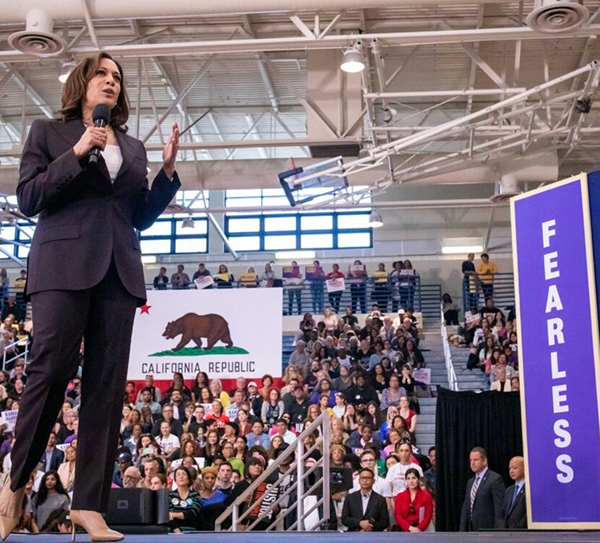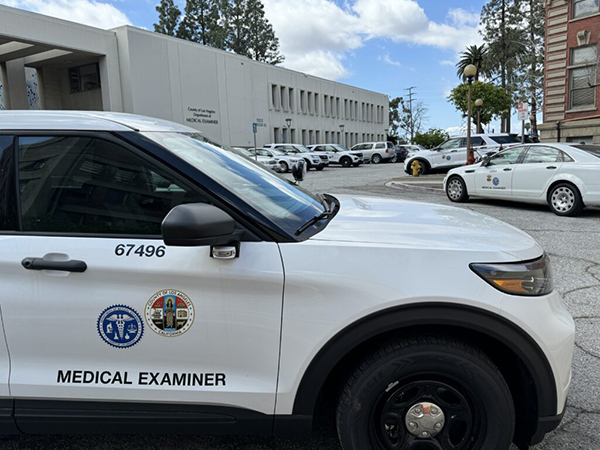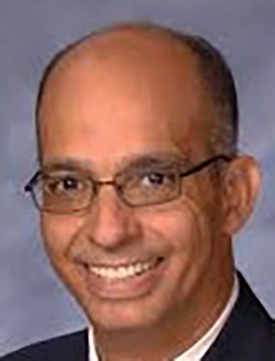There’s more than money behind Trump’s tariff ploy — THE HUTCHINSON REPORT


Courtesy photo
By Earl Ofari Hutchinson
Contributing Columnist
“You’d start with all countries. Essentially all of the countries that we’re talking about.”
President Donald Trump made this big sweeping pronouncement about who he launched his tariff war against in a chat with reporters on Air Force One. That was a few days before his much-ballyhooed press conference on April 2 in which he pledged to slap tariffs virtually on any and every nation.
Trump’s pithy quip told a far different story, maybe the real story, about his long, persistent and relentless tariff obsession.
The real reason for Trump’s tariff plan was in part to exert the U.S.’s financial muscle. It was in greater part Trump’s warning to the world that he was in control and would set the political and ideological tempo for nations. In the harshest sense, it was the global imposition of his signature Make America Great Again mantra.
“We have been ripped off for decades by nearly every country on Earth, and we will not let that happen any longer,” Trump said April 2 in his “Liberation Day” address. “Other countries have used tariffs against us for decades, and now it’s our turn to start using them against those other countries.”
Trump tipped his hand on his real intent with tariffs on several occasions in the months before he took back the White House in November 2024.
He saber rattled Mexico to put an immediate halt to its massive dump of fentanyl into the U.S. as well as Mexico’s alleged refusal to do much about the wave of illegal immigrants pouring into the country.
He saber rattled the European Union nations that they were fleecing America with their tariffs and flow of goods in to the U.S. This, he contended, ballooned America’s trade deficit with them.
He saber rattled China about its flood of cheap goods into the U.S. that soared its national wealth at our expense.
He saber rattled Canada with the wild, fantastic and ludicrous threat to make it America’s 51st state.
Trump tipped his hand in another way about why he welded the tariff sledgehammer. He repeatedly used the word “negotiation.”
He did not mean negotiating in the sense of the classic definition of a give and take discussion, and then making concessions to achieve agreement. He meant negotiation as a political weapon and, to him, a personal weapon.
He tipped his hand once more about his real motive with his tariff obsession when he coined the term “Dirty 15” and slapped it on the globe’s top producing wealthiest nations. He called them the worst offenders in bilking the U.S. and made plain that they would be the prime targets of his tariff salvo.
Trump repeatedly pointed to China as the target for the tariff hike. However, Trump’s eye was also focused on the European Union nations, Canada and Mexico. They were friends and allies. But that was precisely the point. China was not and the likelihood of it being brought to ground by Trump’s tariffs was slim to none.
It was a far different story, though, with the allies. Their policies on issues were at times at variance with that of the U.S. That was especially the case with Mexico on the border issue and the European nations on NATO payments, the Russia-Ukraine War, and the Middle East.
That was untenable to Trump. European nation leaders were well aware that Trump would try to take firm control of global issues and their countries would be a prime target.
The day Trump won the election the heads of the major Western European allies issued effusive statements praising and congratulating him on his win. Yet, underlaying their champagne cheers, there was unease.
European Commission President Ursula von der Leyen observed that the EU and the U.S. “are bound by a true partnership between our people, uniting 800 million citizens. Let us work together on a transatlantic partnership that continues to deliver for our citizens.”
The U.S.’s long-standing ally Japan also struck a note of cautious wariness about Trump’s return to power and what that would mean for that country’s relationship with the U.S.
“I hope to closely cooperate with President-elect Trump to further elevate Japan-U.S. alliance,” noted Japanese Prime Minister Shigeru Ishiba, “and relations to even higher levels.” An anxious Ishiba was among the first to rush to meet with Trump.
Ishiba’s and von der Leyen’s wariness about Trump was a not so subtle recognition that Trump intended to change the power equation between the U.S and Europe. He would now call the political shots.
It was no accident that Trump in announcing the escalation of his tariff assault on the world repeated the warning that things would radically change.
“They all understand they’re ripping us off,” he said.
Trump was bound and determined that he would ensure that they understood that he was now in the global driver seat.
Earl Ofari Hutchinson is an author and political analyst. His latest book is “How World War II Remade America” (Middle Passage Press).





